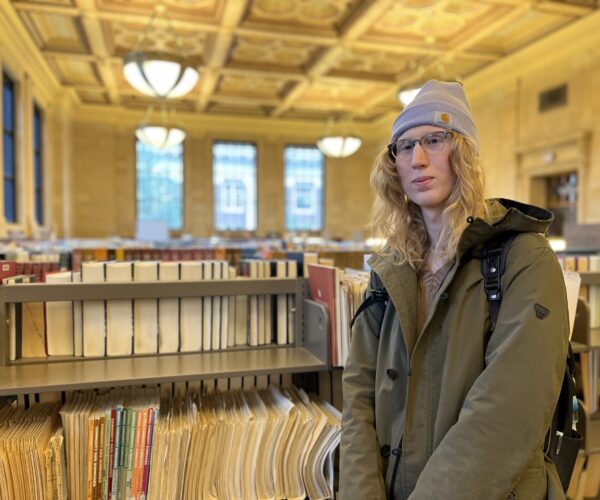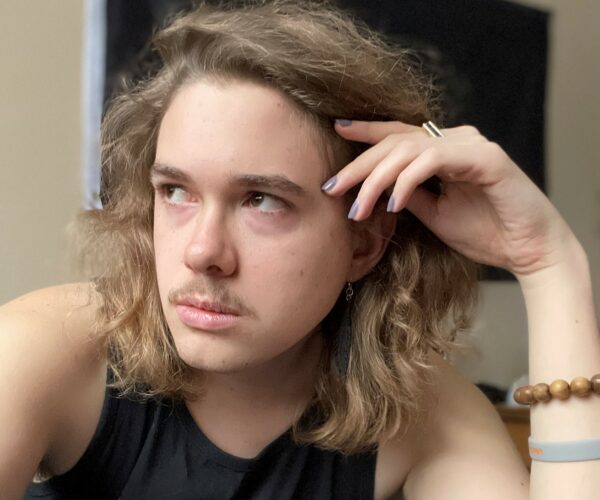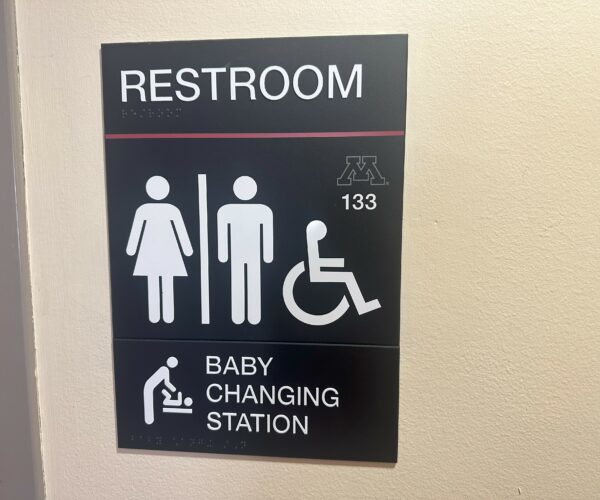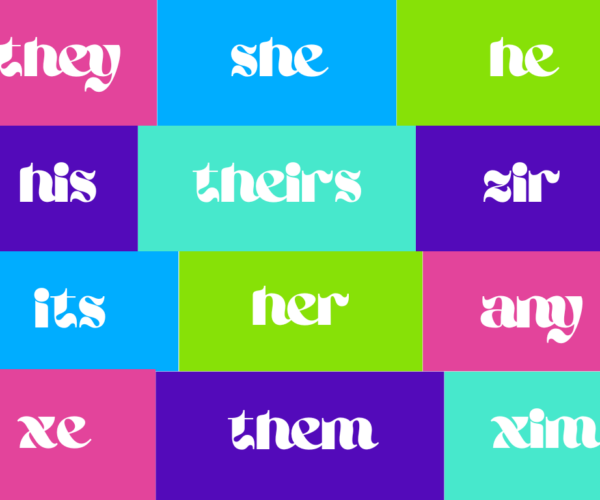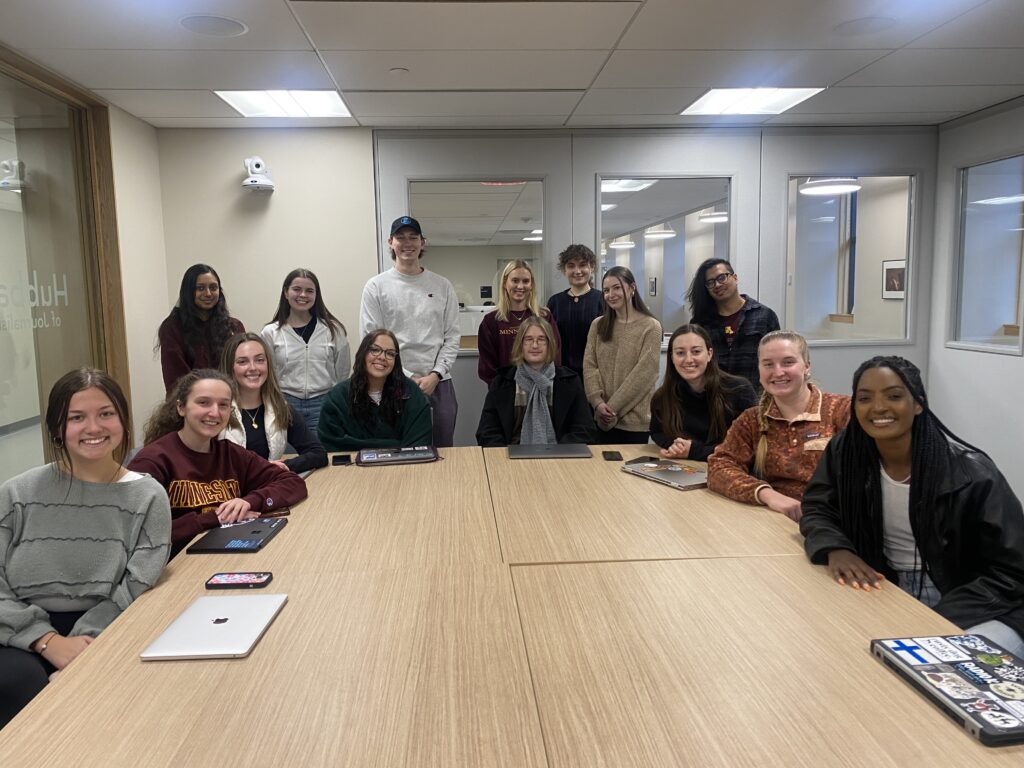
First row: Hanna Van Den Einde, Maia Irvin, Abbey Machtig, Amena Ahmed, Caleb Hensin, Emma Dehm, Marena Reich, Dilame Lindmeier
Second row: Aarushi Sen, Mary Ellen Ritter, Noah Mitchell, Karri Seland, Sommer Wagen, Amanda Fisher, Andrew Kicmol
Not pictured: Noor Adwan, Laura Mokaya, Victoria Schutz
Statement on the use of “queer”
The word “queer” has a long history of use as a derogatory term and has different associations and meanings for every individual. Our decision to use “queer” within our publication came after much thought and conversation with members of LGBTQ+ communities. AccessU is supporting the movement to reclaim “queer” by using the word in our stories to represent all identities. Our mission is to amplify the voices and center the experiences of LGBTQ+ communities in our work.
Editors’ Note
Amid a national landscape that appears to grow more hostile to the mere existence of queer people every day, it is more important now than ever to amplify the voices and center the experiences of queer students who attend the University of Minnesota-Twin Cities.
This year has brought a flood of efforts in state legislatures across the country to curtail queer rights. These include efforts to ban gender affirming care, queer books in schools, drag performances, transgender athletes’ participation in sports and even the mention of sexual orientation or gender identity in elementary classrooms.
While it is necessary to call attention to the struggles and discrimination queer communities face, we felt it was equally important to highlight their joy. The queer experience holds just as much — if not more — potential for joy as it does for struggle. To further this aim of highlighting joy, we decided to create “Pride and Joy,” a collection of brief interviews with members of queer communities on campus intended to center queer joy.
Other stories feature everyday local happenings and events centered on queer experiences and identities. We also reported out a series of profiles highlighting influential people in and around queer communities on campus. The final part of our reporting focused on the issues and experiences most important to queer communities. We based these stories on student responses to a survey sent to nearly 5,000 undergraduates.
Guiding our reporting process is a commitment to fair, equitable and empathetic coverage. It was essential we captured a diversity of voices when discussing queer issues because that very term — queer — is a massive umbrella that covers a range of marginalized identities. There is no monolithic queer community, but rather a diverse collection of communities. Further contributing to this diversity are the intersecting identities that create overlapping systems of disadvantage within these communities. For example, the experiences of white, able-bodied and/or affluent queer people will differ from those of BIPOC, disabled and/or lower-income queer people.
Our goal with this semester-long project is to amplify the voices and center the experiences of queer communities at the University of Minnesota-Twin Cities. We hope by sharing these stories we can encourage productive conversations about how to uplift and support these historically marginalized communities on campus.
Abbey Machtig, Maia Irvin and Noor Adwan, Co-editors
AccessU: Queer on Campus
